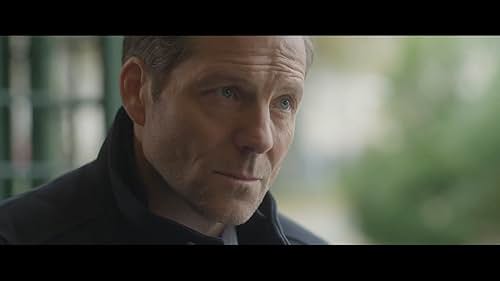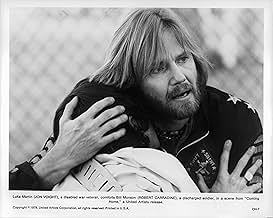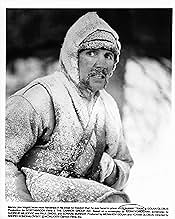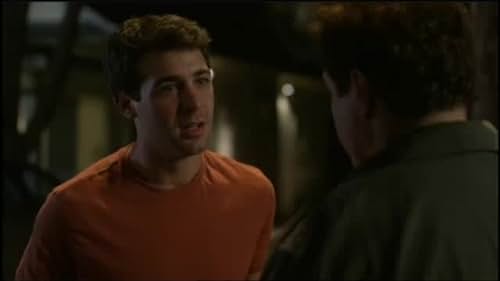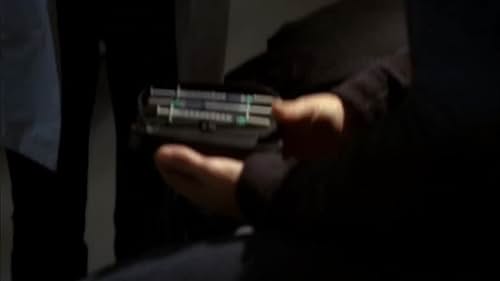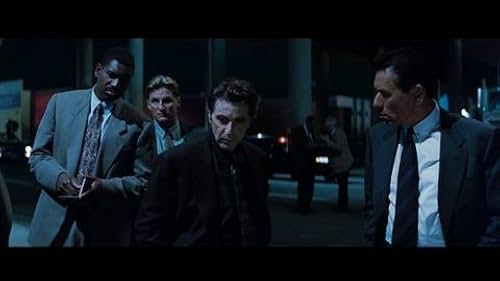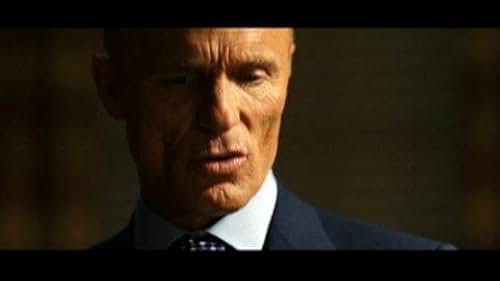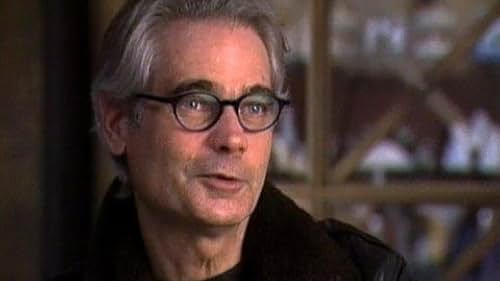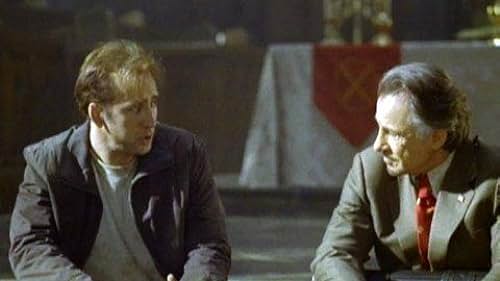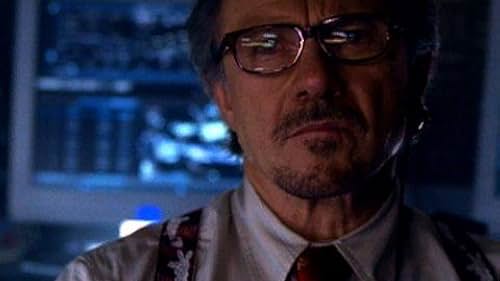Jon Voight
- Actor
- Producer
- Writer
Jon Voight is an American actor of German and Slovak descent. He has won the Academy Award for Best Actor in a Leading Role for his role as paraplegic Vietnam War veteran Luke Martin in the war film "Coming Home" (1978). He has also been nominated for the same award other two times. He was first nominated for his role as aspiring gigolo Joe Buck in "Midnight Cowboy" (1969), He was last nominated for the award for his role as escaped convict Oscar "Manny" Manheim in "Runaway Train" (1985). He was also nominated for the Academy Award for Best Actor in a Supporting Role, for his role as sports journalist Howard Cosell (1918-1995) in "Ali" (2001).
In 1938, Voight was born in Yonkers, New York. His parents were professional golfer Elmer Samuel Voight (original name Elemír Vojtka) and his wife Barbara Agnes (Kamp). His paternal grandfather was a Slovak immigrant, as were the parents of his paternal grandmother. His maternal grandfather was a German immigrant, as were the parents of his maternal grandmother. His maternal great-uncle was political activist Joseph P. Kamp (1900-1993), a leader of the anti-communist organization "Constitutional Educational League".
Voight has two siblings: volcanologist Barry Voight (1937-) and singer-songwriter James Wesley Voight (pseudonym Chip Taylor, 1940-). Barry is most famous for first predicting and then investigating the eruption of Mount St. Helens (1980). James is most famous for writing the hit songs "Wild Thing" (1965) and "Angel of the Morning" (1967).
Voight was educated at Archbishop Stepinac High School, an all-boys Roman Catholic high school located at White Plains, New York. At the time, the school was operated by the Roman Catholic Archdiocese of New York. He took an interest in acting in his high school years, performing a comedic role in the school's annual musical, "The Song of Norway". He graduated in 1956, at the age of 18.
Voight continued his education at The Catholic University of America, located in Washington, D.C.. He majored in art, and graduated in 1960. He was 22-years-old at the time of graduation. He then moved to New York City, having decided to pursue an acting career.
In the early 1960s, Voight primarily worked as a television actor. He guest starred in episodes of then-popular television series, such as "Naked City", "The Defenders", "NET Playhouse", "12 O'Clock High", and "Gunsmoke". His first notable theatrical role was playing the illegal immigrant Rodolfo in a 1965 Off-Broadway production of the play "A View from the Bridge" (1955) by Arthur Miller (1915-2005). In the play, Rodolfo is the love interest of the American girl Catherine, and disliked by her uncle and guardian Eddie Carbone (who is in love with his niece).
Voight made his film debut in the superhero comedy "Fearless Frank" (1967), playing the role of the eponymous superhero. Frank was depicted as a murder victim who gets resurrected and granted superpowers by a scientist. Voiight's second film role was playing historical gunman and outlaw Curly Bill Brocius (1845-1882) in the Western film "Hour of the Gun" (1967). The historical Brocius was an an enemy of the Esrp family, and was killed by Wyatt Earp (1848-1929).
Voigh't third film appearance was "Midnight Cowboy" (1969), his first great success. He played the role of a naive hustler from Texas who tries to become a gigolo in New York City. The film was critically acclaimed, and became the only X-rated feature to win Best Picture at the Academy Awards. Voight was nominated for the Academy Award for Best Actor, but the award was instead won by rival actor John Wayne (1907-1979).
Voight's first role in the 1970s was playing lieutenant Milo Minderbinder in the black comedy "Catch-22" (1970). The film was based on a 1961 satirical novel by Joseph Heller (1923-1999), and offered a satirical view on war and bureaucracy. Voight's next role was playing the left-wing student A in the political drama "The Revolutionary" (1970).
Voight found further critical acclaim with the thriller film "Deliverance" (1972), playing Atlanta businessman Ed Gentry. In the film, Gentry and his first are targeted by villainous mountain men in the northern Georgia wilderness. The film earned about 46 million dollars at the domestic box office, and was nominated for the Academy Award for Best Picture.
His subsequent roles included idealistic schoolteacher Pat Conroy in "Conrack" (1974), journalist Peter Miller in "The Odessa File" (1974). His next great success was playing paraplegic war veteran Luke Martin in "Coming Home" (1978), in a role inspired by the life of war veteran and anti-war activist Ron Kovic (1976-). He won the Academy Award for Best Actor for this film. His co-star Jane Fonda (1937-) won her second Academy Award for Best Actress for her role in this film.
Voight's early 1980s roles included conman Alex Kovac in "Lookin' to Get Out" (1982) and widowed father J. P. Tannen in "Table for Five" (1983). His next big success was the role of escaped convict Oscar "Manny" Manheim in "Runaway Train" (1985). He was again nominated for the Academy Award for Best Actor, but the Award was instead won by rival actor William Hurt (1950-).
Voight's next role was that of Jack Chismore in the drama film "Desert Bloom" (1986). Chismore is depicted as a war veteran suffering from post-traumatic stress disorder (PTSD), who is trying to raise three stepdaughters. He frequently abuses his stepdaughter Rose Chismore (played by Annabeth Gish), but is genuinely concerned for her safety when Rose runs away from home. This film was Voigh's last film role for several years, as he took a hiatus from acting.
Voight returned to acting with the drama film "Eternity" (1990), where he was also the screenwriter. The film deals with reincarnation, as a medieval war within brothers continues in modern American politics. Following his return to acting, Voight started appearing frequently in television films and miniseries. He also guest-starred in a 1994 episode of "Seinfeld", playing himself.
Voight returned to film acting with the crime drama "Heat" (1995), where he had a minor role as a fence. He had a more substantial role in the spy film "Mission: Impossible" (1996), where he played spymaster James Phelps. The film was an adaptation of the popular television series "Mission: Impossible" (1966-1973), about the adventures of a group of secret agents. The role of James Phelps was previously played by actor Peter Graves (1926-2010). The film was a great commercial success, earning about 458 million dollars at the worldwide box office.
Voight appeared in six different films in 1997, one of the busiest years of his career. The most notable among them was the horror film "Anaconda" (1997), where he played obsessive hunter Paul Serone, the film's main antagonist. The film won about 137 million dollars at the box office, despite a mostly negative critical reception. For this role, Voight was nominated for the Golden Raspberry Award for Worst Actor. He lost the award to rival actor Kevin Costner (1955-).
His next notable role was that Thomas Brian Reynolds, agent of the National Security Agency (NSA) in the action thriller "Enemy of the State" (1998). In the film, the NSA conspires to expand the surveillance powers of intelligence agencies over individuals and groups, at the cost of American citizens' right to privacy. The film was another box office success in Voight's career, earning about 251 million dollars at the box office.
In the same year, Voight played inspector Ned Kenny in the crime film "The General" (1998). The film was loosely based on the career of Irish crime boss Martin Cahill (1949-1994), who was nicknamed "the General". The film was critically acclaimed and director John Boorman won the Cannes Film Festival Award for Best Director.
Voight's next notable role was that of domineering coach Bud Kilmer in the sports film "Varsity Blues" (1999). The film dealt with the difficulties in the life of the players of a Texas-based high school football team, and was not expected to attract much attention by audiences. It earned about 54 million dollars at the box office, making it a modest box office hit. It is credited with introducing Voight to a next generation of fans.
Voight's final film in the 1990s was "A Dog of Flanders" (1999), based on a 1872 novel by Ouida (1839-1908). He played the role of artist Michel La Grande, the mentor of Nello (played by Jeremy James Kissner), who is eventually revealed to be Nello's biological father. The film failed at the box office, failing to earn as much as its modest budget.
Voight appeared in no film released in 2000, but had a busy year in 2001. He appeared in several box office hits of the year. He played President of the United States Franklin Delano Roosevelt (1882-1945, term 1933-1945) in the war drama "Pearl Harbor", Lara Croft's father Lord Richard Croft in the action film "Lara Croft: Tomb Raider", coal-miner and working class father Larry Zoolander in action comedy "Zoolander", and sports journalist Howard Cosell in the biographical film "Ali". For his role in "Ali", Voight was nominated for the Academy Award for Best Supporting Actor. The award was instead won by rival actor Jim Broadbent (1949-). It was Voight's fourth and (so far) last nomination for an Academy Award.
Voight had a notable role playing Pope John Paul II (1920-2005, term 1978-2005) in the miniseries "Pope John Paul II" (2005). He was nominated for the Primetime Emmy Award for Outstanding Lead Actor in a Limited Series or Movie, but the award was instead won by rival actor Andre Braugher (1962-).
Voight had a supporting role as John Keller, United States Secretary of Defense in the science fiction film "Transformers" (2007). The film was based on the Transformers toy line by Hasbro.It earned about 710 million dollars at the box office, one of the most commercially successful films in Voight's career.
In 2009, Voight had a notable television role, playing Jonas Hodges, the CEO of a Virginia-based private military company in the then-popular television series "24" (2001-2010, 2014). He was a main antagonist in the seventh season of the series. His role was inspired by the careers of Hessian colonel Johann Rall (c. 1726-1776), German industrialist Alfried Krupp von Bohlen und Halbach (1907-1967), and private military company CEO Erik Prince (1969-).
His 2010s notable film roles include the role of Dracula's enemy Loonardo Van Helsing in the horror film "Dracula: The Dark Prince" (2013), football coach Paul William "Bear" Bryant (1913-1983) in the sports drama "Woodlawn" (2015), and newspaper owner Henry Shaw Sr. in "Fantastic Beasts and Where to Find Them" (2016). "Fantastic Beasts" earned about 814 million dollars at the worldwide box office, being one of the most commercially successful films that Voight ever appeared in.
In 2020, was 82-years-old, and he is still working as an actor.
In 1938, Voight was born in Yonkers, New York. His parents were professional golfer Elmer Samuel Voight (original name Elemír Vojtka) and his wife Barbara Agnes (Kamp). His paternal grandfather was a Slovak immigrant, as were the parents of his paternal grandmother. His maternal grandfather was a German immigrant, as were the parents of his maternal grandmother. His maternal great-uncle was political activist Joseph P. Kamp (1900-1993), a leader of the anti-communist organization "Constitutional Educational League".
Voight has two siblings: volcanologist Barry Voight (1937-) and singer-songwriter James Wesley Voight (pseudonym Chip Taylor, 1940-). Barry is most famous for first predicting and then investigating the eruption of Mount St. Helens (1980). James is most famous for writing the hit songs "Wild Thing" (1965) and "Angel of the Morning" (1967).
Voight was educated at Archbishop Stepinac High School, an all-boys Roman Catholic high school located at White Plains, New York. At the time, the school was operated by the Roman Catholic Archdiocese of New York. He took an interest in acting in his high school years, performing a comedic role in the school's annual musical, "The Song of Norway". He graduated in 1956, at the age of 18.
Voight continued his education at The Catholic University of America, located in Washington, D.C.. He majored in art, and graduated in 1960. He was 22-years-old at the time of graduation. He then moved to New York City, having decided to pursue an acting career.
In the early 1960s, Voight primarily worked as a television actor. He guest starred in episodes of then-popular television series, such as "Naked City", "The Defenders", "NET Playhouse", "12 O'Clock High", and "Gunsmoke". His first notable theatrical role was playing the illegal immigrant Rodolfo in a 1965 Off-Broadway production of the play "A View from the Bridge" (1955) by Arthur Miller (1915-2005). In the play, Rodolfo is the love interest of the American girl Catherine, and disliked by her uncle and guardian Eddie Carbone (who is in love with his niece).
Voight made his film debut in the superhero comedy "Fearless Frank" (1967), playing the role of the eponymous superhero. Frank was depicted as a murder victim who gets resurrected and granted superpowers by a scientist. Voiight's second film role was playing historical gunman and outlaw Curly Bill Brocius (1845-1882) in the Western film "Hour of the Gun" (1967). The historical Brocius was an an enemy of the Esrp family, and was killed by Wyatt Earp (1848-1929).
Voigh't third film appearance was "Midnight Cowboy" (1969), his first great success. He played the role of a naive hustler from Texas who tries to become a gigolo in New York City. The film was critically acclaimed, and became the only X-rated feature to win Best Picture at the Academy Awards. Voight was nominated for the Academy Award for Best Actor, but the award was instead won by rival actor John Wayne (1907-1979).
Voight's first role in the 1970s was playing lieutenant Milo Minderbinder in the black comedy "Catch-22" (1970). The film was based on a 1961 satirical novel by Joseph Heller (1923-1999), and offered a satirical view on war and bureaucracy. Voight's next role was playing the left-wing student A in the political drama "The Revolutionary" (1970).
Voight found further critical acclaim with the thriller film "Deliverance" (1972), playing Atlanta businessman Ed Gentry. In the film, Gentry and his first are targeted by villainous mountain men in the northern Georgia wilderness. The film earned about 46 million dollars at the domestic box office, and was nominated for the Academy Award for Best Picture.
His subsequent roles included idealistic schoolteacher Pat Conroy in "Conrack" (1974), journalist Peter Miller in "The Odessa File" (1974). His next great success was playing paraplegic war veteran Luke Martin in "Coming Home" (1978), in a role inspired by the life of war veteran and anti-war activist Ron Kovic (1976-). He won the Academy Award for Best Actor for this film. His co-star Jane Fonda (1937-) won her second Academy Award for Best Actress for her role in this film.
Voight's early 1980s roles included conman Alex Kovac in "Lookin' to Get Out" (1982) and widowed father J. P. Tannen in "Table for Five" (1983). His next big success was the role of escaped convict Oscar "Manny" Manheim in "Runaway Train" (1985). He was again nominated for the Academy Award for Best Actor, but the Award was instead won by rival actor William Hurt (1950-).
Voight's next role was that of Jack Chismore in the drama film "Desert Bloom" (1986). Chismore is depicted as a war veteran suffering from post-traumatic stress disorder (PTSD), who is trying to raise three stepdaughters. He frequently abuses his stepdaughter Rose Chismore (played by Annabeth Gish), but is genuinely concerned for her safety when Rose runs away from home. This film was Voigh's last film role for several years, as he took a hiatus from acting.
Voight returned to acting with the drama film "Eternity" (1990), where he was also the screenwriter. The film deals with reincarnation, as a medieval war within brothers continues in modern American politics. Following his return to acting, Voight started appearing frequently in television films and miniseries. He also guest-starred in a 1994 episode of "Seinfeld", playing himself.
Voight returned to film acting with the crime drama "Heat" (1995), where he had a minor role as a fence. He had a more substantial role in the spy film "Mission: Impossible" (1996), where he played spymaster James Phelps. The film was an adaptation of the popular television series "Mission: Impossible" (1966-1973), about the adventures of a group of secret agents. The role of James Phelps was previously played by actor Peter Graves (1926-2010). The film was a great commercial success, earning about 458 million dollars at the worldwide box office.
Voight appeared in six different films in 1997, one of the busiest years of his career. The most notable among them was the horror film "Anaconda" (1997), where he played obsessive hunter Paul Serone, the film's main antagonist. The film won about 137 million dollars at the box office, despite a mostly negative critical reception. For this role, Voight was nominated for the Golden Raspberry Award for Worst Actor. He lost the award to rival actor Kevin Costner (1955-).
His next notable role was that Thomas Brian Reynolds, agent of the National Security Agency (NSA) in the action thriller "Enemy of the State" (1998). In the film, the NSA conspires to expand the surveillance powers of intelligence agencies over individuals and groups, at the cost of American citizens' right to privacy. The film was another box office success in Voight's career, earning about 251 million dollars at the box office.
In the same year, Voight played inspector Ned Kenny in the crime film "The General" (1998). The film was loosely based on the career of Irish crime boss Martin Cahill (1949-1994), who was nicknamed "the General". The film was critically acclaimed and director John Boorman won the Cannes Film Festival Award for Best Director.
Voight's next notable role was that of domineering coach Bud Kilmer in the sports film "Varsity Blues" (1999). The film dealt with the difficulties in the life of the players of a Texas-based high school football team, and was not expected to attract much attention by audiences. It earned about 54 million dollars at the box office, making it a modest box office hit. It is credited with introducing Voight to a next generation of fans.
Voight's final film in the 1990s was "A Dog of Flanders" (1999), based on a 1872 novel by Ouida (1839-1908). He played the role of artist Michel La Grande, the mentor of Nello (played by Jeremy James Kissner), who is eventually revealed to be Nello's biological father. The film failed at the box office, failing to earn as much as its modest budget.
Voight appeared in no film released in 2000, but had a busy year in 2001. He appeared in several box office hits of the year. He played President of the United States Franklin Delano Roosevelt (1882-1945, term 1933-1945) in the war drama "Pearl Harbor", Lara Croft's father Lord Richard Croft in the action film "Lara Croft: Tomb Raider", coal-miner and working class father Larry Zoolander in action comedy "Zoolander", and sports journalist Howard Cosell in the biographical film "Ali". For his role in "Ali", Voight was nominated for the Academy Award for Best Supporting Actor. The award was instead won by rival actor Jim Broadbent (1949-). It was Voight's fourth and (so far) last nomination for an Academy Award.
Voight had a notable role playing Pope John Paul II (1920-2005, term 1978-2005) in the miniseries "Pope John Paul II" (2005). He was nominated for the Primetime Emmy Award for Outstanding Lead Actor in a Limited Series or Movie, but the award was instead won by rival actor Andre Braugher (1962-).
Voight had a supporting role as John Keller, United States Secretary of Defense in the science fiction film "Transformers" (2007). The film was based on the Transformers toy line by Hasbro.It earned about 710 million dollars at the box office, one of the most commercially successful films in Voight's career.
In 2009, Voight had a notable television role, playing Jonas Hodges, the CEO of a Virginia-based private military company in the then-popular television series "24" (2001-2010, 2014). He was a main antagonist in the seventh season of the series. His role was inspired by the careers of Hessian colonel Johann Rall (c. 1726-1776), German industrialist Alfried Krupp von Bohlen und Halbach (1907-1967), and private military company CEO Erik Prince (1969-).
His 2010s notable film roles include the role of Dracula's enemy Loonardo Van Helsing in the horror film "Dracula: The Dark Prince" (2013), football coach Paul William "Bear" Bryant (1913-1983) in the sports drama "Woodlawn" (2015), and newspaper owner Henry Shaw Sr. in "Fantastic Beasts and Where to Find Them" (2016). "Fantastic Beasts" earned about 814 million dollars at the worldwide box office, being one of the most commercially successful films that Voight ever appeared in.
In 2020, was 82-years-old, and he is still working as an actor.

